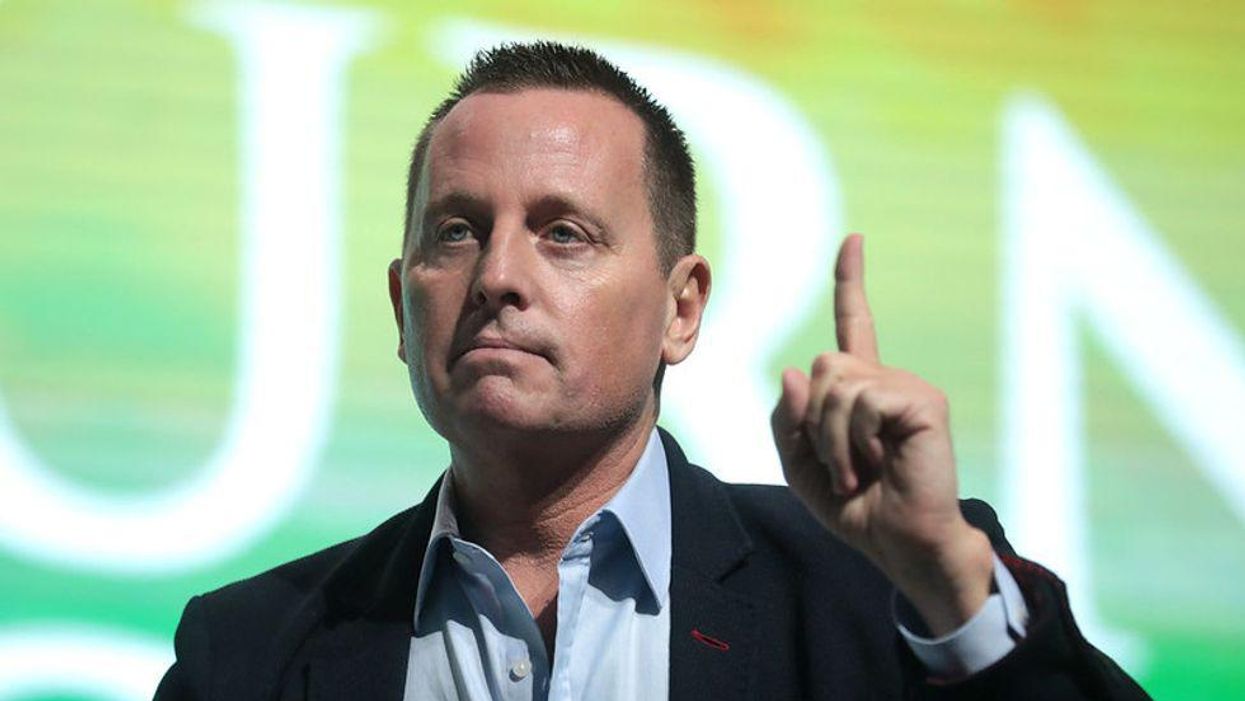Trump Pretends To Be Running US Foreign Policy From Mar-a-Lago
Former President Donald Trump on Thursday suggested he's running a shadow government out of his Mar-a-Lago golf club in Florida, saying he sent an "Envoy Ambassador" to the Kosovo-Serbia border to help the two nations work toward "peace."
"The great people of Serbia and Kosovo have overcome tremendous obstacles in their pursuit of economic normalization," says a statement released by Trump's Save America PAC in which he describes himself as the "45th President of the United States."
Trump says, "The agreements my administration brokered are historic and should not be abandoned, many lives are at stake. The region is too important and the people have waited too long for this work to be cast aside. Today, my Envoy Ambassador Ric Grenell visited the Kosovo-Serbia border to highlight this important agreement."
Trump's statement raises eyebrows, not least because in 2019 he accused former Secretary of State John Kerry of violating the Logan Act for talking to Iran when Trump was president and called for Kerry to be prosecuted over it.
The Logan Act, enacted in 1799, prohibits unauthorized American citizens from conducting foreign policy. The law states:
Any citizen of the United States, wherever he may be, who, without authority of the United States, directly or indirectly commences or carries on any correspondence or intercourse with any foreign government or any officer or agent thereof, with intent to influence the measures or conduct of any foreign government or of any officer or agent thereof, in relation to any disputes or controversies with the United States, or to defeat the measures of the United States, shall be fined under this title or imprisoned not more than three years, or both.
"What I'd like to see with Iran, I'd like to see them call me. John Kerry speaks to them a lot, and John Kerry tells them not to call. That's a violation of the Logan Act, and frankly he should be prosecuted on that," Trump said at the time, adding, "Only the Democrats do that kind of stuff."
The leaders of Serbia and Kosovo visited the White House in September 2020 to highlight the "Washington Agreement," two separate documents each signed by one of the countries that Trump called "a major breakthrough." The "agreement" was aimed at normalizing relations between Kosovo, which declared independence from Serbia in 2008, and Serbia, which has so far refused to recognize it as a sovereign state. The agreement has not put an end to ongoing issues between the two, including continuing violence at their shared border.
Now Trump is apparently sending Grenell — a Trump defender who came under fire during his three months as acting director of national intelligence during the Trump administration for politicizing American intelligence — to conduct foreign policy on his behalf.
What's more, Grenell himself also attacked Kerry during an appearance on Fox News in April, accusing him of "constantly undermining what the Trump policy was" on Iran.
It's unclear whether Trump is actually violating the Logan Act. When he accused Kerry of doing so, experts said he was misinterpreting the law and using it for partisan purposes.
"Folks will be upset at this as Trump violating norms, undercutting U.S. foreign policy, and hypocritically doing what his administration castigated others for doing when he was POTUS," Daniel Drezner, an international politics professor at the Fletcher School at Tufts University, tweeted. "I will instead be laughing at 'envoy ambassador' and the permanent beclowning of Ric Grenell."
In a statement to reporters, the White House dismissed Trump's claim that he had an "Envoy Ambassador" traveling to the Kosovo-Serbia border.
"Outside of his very active imagination, Donald Trump is no longer President and doesn't have any 'envoy ambassadors' representing the United States," an unnamed White House official said, according to Bloomberg News' Jennifer Epstein.
Updated to include a statement from the White House.
Published with permission of The American Independent Foundation.




